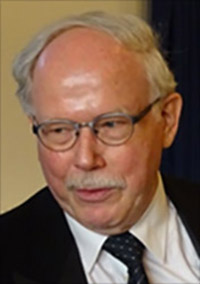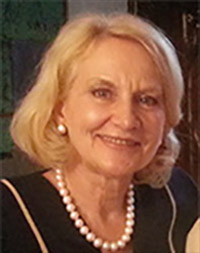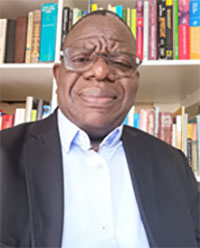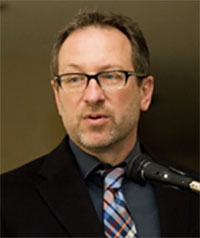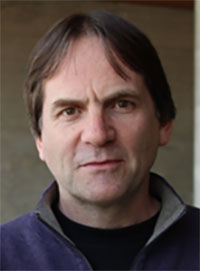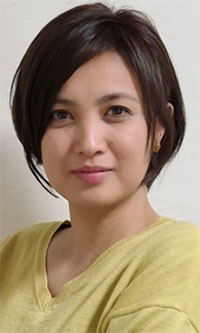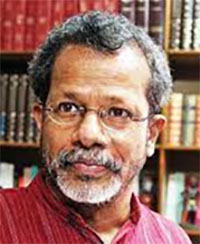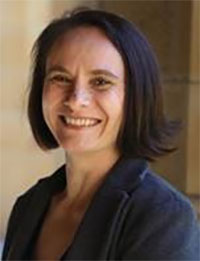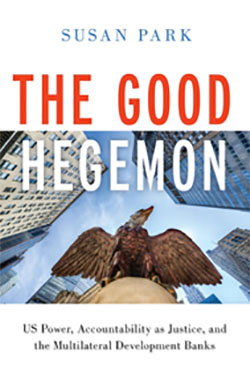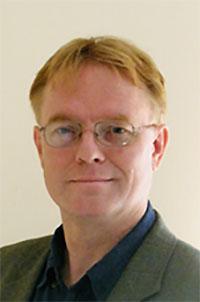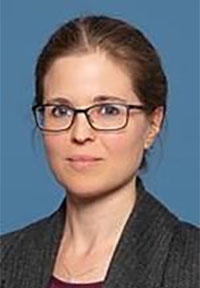 |
International Science Prize on Peace and Ecology in the Anthropocene | |||||||
| HGB- Foundation | Call for
2023 (ISP) |
Theme of 2023 (ISP) | Award Winners |
History of the Award | |
|||
| Science Prize | Call for
2024 ISP) |
Theme of 2024 (ISP) | Award Winners 2024 | |||||
| Home | German Website |
International Press | Global Jury | Call for 2025 (ISP) | Theme of 2025 (ISP) | Award Winners 2025 | ||
| Jury Members of the Global Science Prize of the HGBF-PEA |
Global Jury of the Science Prize on Peace and Ecology in the Anthropocene | Areas of Expertise of the Jury Members | |||
|
|||||
|
He has published on security, armaments, climate, energy, migration, and Mediterranean issues in English and German, and his works have been translated into Chinese, Spanish, Greek, French, Danish, Finnish, Russian, Japanese, Portuguese, Serbo-Croatian, and Turkish. Recent books in English published by Springer:
|
Hans Günter Brauch (Germany), PD Dr., was, until 2012, Adj. Prof. (Privatdozent) at the Faculty of Political and Social Sciences, Free University of Berlin; since 1987 he has been chairman of Peace Research and European Security Studies (AFES-PRESS) and in 2020 he set up the Hans Günter Brauch Foundation on Peace and Ecology in the Anthropocene (HGBS), of which he is the managing board chairman. He was a guest professor of international relations at the universities of Frankfurt am Main, Leipzig, Greifswald, and Erfurt, a research associate at Heidelberg and Stuttgart, and a research fellow at Harvard and Stanford Universities. In the autumn and winter of 2013/2014 he was a guest professor at Chulalongkorn University in Bangkok. He has been a member of the IPRA Council (1996-2000 and 2016-2020) and of its Executive Committee (2016-2018). He is editor of these five English-language scientific book series published by Springer-Verlag (Heidelberg et al.), Springer International Publishing and Springer Nature Switzerland (Cham, Zug, Switzerland):
|
|||
|
|
She has studied medicine, psychology, philosophy, modern languages, anthropology and ecology in Madagascar, Paris, Zurich and Mexico, PhD, University of Zurich, postdoc in Mexico. She was the first MRF-Chair on Social Vulnerability at United Nations University Institute for Environment and Human Security (UNU-EHS). She co-founded the Research Center of the National Institute of Anthropology and History (CISINAH today CIESAS). She participated in the consolidation of the Metropolitan University in Mexico City, Campus Xochimilco (UAM), founded the College of Tlaxcala (Coltlax), was a lead author of the IPCC, and a member of an IIASA task force. In 2016 she was elected in Sierra Leone as Secretary General and in 1998 in Durban, South Africa, as President of the International Peace Research Association. She was General Secretary of the Latin-American Council for Peace Research (CLAIP, 2002-2006), where she is now Honorary President. From 1992 to 1994 she was the first General Attorney for environment (ombudswomen) and as the first women she set up the new Ministry of Environmental Development in the state of Morelos (1994-1998). She published 70 books and more than 412 scientific articles and book chapters alone or with co-authors. Their scientific work was written or translated into Spanish, English, French, Finnish, German, Turkish, Chinese, Japanese, and Swedish. She received several prizes for: 50 years of Research in Morelos; Sor Juana Inés de la Cruz; the Ecological Merit of Tlaxcala; Medal of General Emiliano Zapata; Women of the Year 2000; Fourth Decade of Development of UN; Academic Women from UNAM and the Merit of Academic Work Disciplines and research topics:Ecology, psychology, peace research, sustainable development, global environmental change, climate change, water issues, gender debate, Anthropocene. |
|||
|
|||||
|
Publications Prof Ettang has published in peer-reviewed journals, including the Peace and Conflict Review, Alternations, Africa Development, Journal of African Elections, Politikon, and Gender & Behaviour. Rabele, L., Adeogun, T., and Ettang, D. (2025) Mediation in Sudan and Ethiopia: Lessons Learnt from the Gambia Track III Mediation Process. Unisa: Politea Gbadeyan, O.J; Ettang, D.; Oyebamiji, S.I.; Osadola, O.S.; Ola, A.A.; Odedokun, E.A.; and Agidigbi, E.R. (2024) Local Conflict Management Strategies and Resilient Factors among selected Feuding Communities in Kwara State, Nigeria. Africa Renaissance, 21 (4), 231-248. Ettang D, Belli A, Caroli G, Denje T.M, Diji C, Kadry S, Medina L, Madurga-Lopez I, Nying'uro P, Okem A.E, Oluoch J, Pacillo G, Villa V, Schapendonk F, Kenduiywo, B. and Wamukoya, G. (2023). Climate Change, Peace and Security in Africa. Policy Brief. African Group of Negotiators Experts Support. Ettang, D. (2023). Exploring the Role of Civil Society in Countering Organised Crime. In Vieira, M. (ed.) Global Approach and State Fragility in Organised Crime. Costa Rica: United BUniversity of Peace Press. Ettang, D. and James, G.O. (2022). Community Policing and Community-Based Security Regimes in Africa. In: Tar, U.A. and Dawud, D.M. (eds) Policing Criminality and Insurgency in Africa: Perspectives on the Changing Wave of Law Enforcement. Maryland: Lexington Books. Ettang, D., Tella, O. (2022). ‘First Comes Love, then Comes Marriage?’: Exploring the Narratives and Experiences of South African Partners of Nigerian Male Immigrants in South Africa. In: Isike, C., Isike, E.M. (eds) Conflict and Concord. Palgrave Macmillan, Singapore. Ettang, D. (2022) Migrant Learners in a COVID-19 Context: Exploring Strategies for School Leader-ship and Management. Alternation. Olowojolu, O. and Ettang, D. (2021). Boko Haram Insurgency and Displaced Persons: A case study of the Damare IDP Camp, Adamawa State in Sleeping Giant? Nigeria’s Domestic and International Politics in the Twenty-First Century. Tella, O. Switzerland: Springer. Ettang, D. and Ogunnubi, O. (2020) Causes, Effects and Implications of Political Violence and Disorder in West Africa: The Cases of Burkina Faso, Mali, and Nigeria. In Contemporary Security Issues in Africa. Amusan, L. and Badmus, I.A. (eds) Washington: Academica Press. Ettang, D. and Leeke, N. (2019). Africa’s Emerging Giants and the Drug Scourge: Exploring a Nigeria - South African Bilateral Partnership. In Nigeria-South Africa Relations and Regional Hegemonic Competence, Tella, O. (eds). Switzerland: Springer. |
Assoc. Prof Dorcas. O. Ettang Discipline/research topics Professional membership |
|||
|
Publications (2021). Responding to Epistemic Injustice against Child Soldiers. The International Journal of Children's Rights, 29(3), 662-700. (2020). Dynamics of Child soldiers’ Psychosocial Rehabilitation and Well-being: Perspectives from Bioecological Systems Theory in the Democratic Republic of Congo. Child Psychiatry & Human Development, 52(3), 376-388. (2019) Combining restorative justice and social justice: Prospects of child soldiering transitional justice, African Security Review, 27(3-4), 193-211 (2018) The impact of globalisation on child soldiering: challenges and opportunities in the context of the Democratic Republic of Congo. International Social Science Journal 66(221-222), 271-284. (2018) Child Soldiers and Restorative Justice: Participatory Action Research in the Eastern Democratic Republic of Congo. Cham ZG: Springer International Publishing. (2017) Combining social justice with transitional and restorative justice: an agenda for an integrative justice model in transitional societies. In Jessica Evans (Ed.), Restorative justice and Transitional Justice: perspectives, progress and considerations for the future (New York: Nova Publishers), pp. 82-177. (2017) Reintegrating former child soldiers in the eastern Democratic Republic of Congo. In: Kaye S, Harris G (eds) Building peace via action research: African case studies (Addis Ababa: United Nations University for Peace (UPEACE)), pp. 223-236. (2016) Utilising a traditional approach to restorative justice in the reintegration of former child soldiers in the North Kivu Province, Democratic Republic of Congo. Africa Insight 46 (3):33-50. (2015) Challenges of Reintegrating Self-Demobilised Child Soldiers in North Kivu Province: Prospects for Accountability and Reconciliation via Restorative Justice Peacemaking Circles. Human Rights Review 16(2):99-122. Kiyala, Jean Chrysostome K., and Harris Geoffrey T. (eds.) (2022) Civil Society and Peacebuilding in Sub-Saharan Africa in the Anthropocene: An Overview |
Chrys Kiyala is a Senior Lecturer, International Centre of Nonviolence (ICON), Durban University of Technology (DUT), South Africa; Associate Professor and visiting lecturer, University of Bandundu, Catholic University La Sapientia_Goma, Catholic University of Bukavu and Evangelical University in Africa, North Kivu Province (DR Congo). He holds a PhD in Management Sciences, Peace Studies and a MTech in Public Administration, DUT; MPhil in Religious Education and Pastoral Theology, St Augustine College of South Africa Discipline and research topics Professional membership |
|||
|
|||||
|
Recent Publications:
|
Antonina Ivanova Boncheva is a Professor and Senior Researcher at the Department of Economics and Director of APEC Studies Center, Universidad Autonoma de Baja California Sur, Mexico. Doctor in Economics (UNAM) with Postdoctoral Degree in Peace Studies (University of Bradford, UK). She served as Vice Chair of Working Group 3 Bureau of the Intergovernmental Panel on Climate Change (IPCC), 2008-2016. Member of the Mexican Academy of Sciences and of the Mexican System of National Researchers. Lead Author of the Fourth Assessment Report of the IPCC (Nobel Price Reward 2007), Review Editor of the Fifth Assessment Report and of the IPCC Special Report on Renewable Energies, and Lead Author of the IPCC Sixth Assessment Report (2018-2022). Her research focuses on policies and financial instruments of climate action, anthropocene and climate change, international cooperation, green financing and sustainable development. She is an author or editor of 25 books, 82 book chapters, and more than 200 peer reviewed papers. Invited professor at the Universities of Bradford and Leeds, UK; University of California, San Diego and Northridge, CA, US; University of Tottori, Japan; Academy of Sciences of Bulgaria. Dr. Ivanova has directed projects sponsored by the Mexican Council of Science and Technology (CONACYT), the Inter-American Development Bank (IDB), the German Society for Sustainable Development (GIZ) and the United Nations Development Program (UNDP). During 2021-2022 she lead an interdisciplinary team to develop the Regional Water Program (PHR), Peninsula of Baja California. Winner of the Science and Technology Award of the State of Baja California Sur, 2017 and Award as Researcher on the Pacific Rim, 2021. | |||
|
He has over 200 publications. Recent books and co-edited volumes include Contested Grounds: Security and Conflict in the New Environmental Politics (SUNY Press: 1999); Conserving the Peace: Resources, Livelihoods, and Security (IISD: 2002); Landmines and Human Security: International Relations and War’s Hidden Legacy (SUNY Press: 2004); Global Environmental Change and Human Security (MIT Press: 2010); Environmental Security, Volumes One- Four (Sage Press: 2014); The Social Ecology of the Anthropocene (World Scientific Publishing/Imperial College Press: 2015); Women’s Perspectives on Human Security: Violence, Environment, and Sustainability (Ohio University Press: 2020); The Routledge Handbook of Environmental Security. New York: (Routledge: 2022). | His research explores challenges at the intersection of three sets of variables: nature loss and climate change; poverty and inequality; and disaster, displacement and violent conflict. Current research focuses on (a) environmental peacebuilding, (b) environmental change and migration, (c) climate change and planetary health and (d) the co-development of visualization tools using big data and local knowledge to provide practical hazard risk management support to communities that are highly vulnerable to flood and other extreme events. He has done extensive field work in conflict zones in South Asia and sub-Saharan Africa. His research is widely diffused beyond academic outlets to support the efforts of practitioners in the conservation and humanitarian communities. He was lead author of the UN policy justification, From Conflict to Peacebuilding: The Role of Natural Resources and the Environment. He has given three TEDx talks and been a featured storyteller on The Moth twice. He is also Vice President of the Environmental Peacebuilding Association; a Senior Fellow at the International Institute for Sustainable Development in Geneva; a senior member of the United Nations Expert Group on Environment, Conflict; a member of International Union for the Conservation of Nature’s Commission on Environment, Economic and Social Policy and co-chair of its Task Force on Conservation, Migration and Conflict. |
|||
|
Publications (2022) Rethinking Environmental Security Cheltenham: Edward Elgar. (2021) “Unsustainable Borders? Globalization in a Climate Disrupted World” Borders in Globalization Review 2(2). 26-37. (2020) Anthropocene Geopolitics: Globalization, Security, Sustainability Ottawa: University of Ottawa Press. (2019) (Coeditor with Susan Horton, Rianne Mahon and Diana Thomaz) Achieving the Sustainable Development Goals: Global Governance Challenges London: Routledge. (2018) “Firepower: Geopolitical Cultures in the Anthropocene” Geopolitics 23(3). 718-742. |
Simon Dalby is a Professor at Wilfrid Laurier University, Waterloo, Ontario, where he teaches in the Balsillie School of International Affairs, and a Senior Fellow at the Centre for International Governance Innovation. He was educated at Trinity College Dublin, the University of Victoria and holds a Ph.D. from Simon Fraser University. Prior to joining Wilfrid Laurier University he was Professor of Geography, Environmental Studies and Political Economy at Carleton University. He has served as co-editor of Geography Compass and Geopolitics journals and from 2012 to 2018 he was CIGI Chair in the Political Economy of Climate Change at the Balsillie School of International Affairs. He has active research interests in contemporary climate change discourse as well as the burgeoning debate about the Anthropocene and its implications for politics and policy formulation and a longstanding interest in the shifting parameters of debates about security, its relationship to environment and climate change in particular. Disciplines and research topics: Geography, political economy, environment, climate change, environmental security, the Anthropocene, geopolitics. |
|||
|
|||||
|
|
Dahlia Simangan holds a PhD in International, Political, and Strategic Studies from the Australian National University (2017), an MA in International Relations from the International University of Japan (2010), and BA in Sociology from the University of the Philippines, Diliman (2006) where she is originally from. She was a Kanagawa University Japan Society for the Promotion of Science (JSPS) postdoctoral fellow for research in Japan (nominated by the United Nations University – Centre for Policy Research (UNU-CPR) in Tokyo) from 2017 to 2019. She is the author of International Peacebuilding and Local Involvement: A Liberal Renaissance (Routledge, 2019) and several journal articles and book chapters. Disciplines and research topics: |
|||
|
Dr. Imtiaz Ahmed has authored, co-authored, or edited 34 books and 13 monographs. More than 120 research papers and scholarly articles have been published in leading journals and chapters in edited volumes. His recent publications are the following books:
|
Dr Imtiaz Ahmed was born in Bangladesh, and is Professor of International Relations and Director, Centre for Genocide Studies at the University of Dhaka. Professor Ahmed was educated at the University of Dhaka, The Australian National University, Canberra, Australia, and Carlton University, Ottawa, Canada. He is also currently Visiting Professor at Sagesse University, Beirut. Professor Ahmed is the recipient of various awards and honours. Discipline and research area: Political science, international relations, peace research, genocide studies, environmental and water issues, South Asian politics, religion and culture, tolerance and terrorism, politics of development, refugees and migration, and women and the environment. |
|||
|
Prof. Dr. Susan Park has published in numerous journals, most recently in the Review of International Political Economy. Her most recent books are:
She has co-edited special editions and books including:
Susan Park is an Associate Editor of the journal
Susan was the Chair of the Environmental Studies Section of the ISA from 2015 to 2017. Her list of publications is here: |
Professor Susan M. Park’s primary research interests include:
Research Affiliations:
Journals (Board member):
Academic Associations:
|
|||
|
|||||
|
Disciplines and research topics: Physics, mathematics, geography; multi-disciplinary research on potential security risks, social instabilities and conflicts due to climate change; strategies for international cooperation, conflict management and sustainable peace. Integrated framework of linkages and feedbacks between climate change, natural resources, human needs and societal stability; Human-society-nature interactions; climate change, climate security and resource conflicts; renewable energies and sustainable land use; modelling of complex systems; technology assessment, arms control and international security. | ||||
|
Publications
Journal Articles
|
Research Fields & Expertise International Relations and Political Theory; Security Studies; Peace & Conflict Studies; Global Governance; Climate Politics and Climate Security Academic Qualifications
Professional experience and research activities (since Aug./ Sep. 2019):
Study and research stays abroad
Professional memberships
|
| Imprint | Legal Notice | Flyer |
